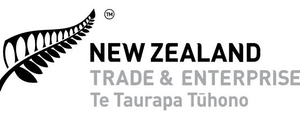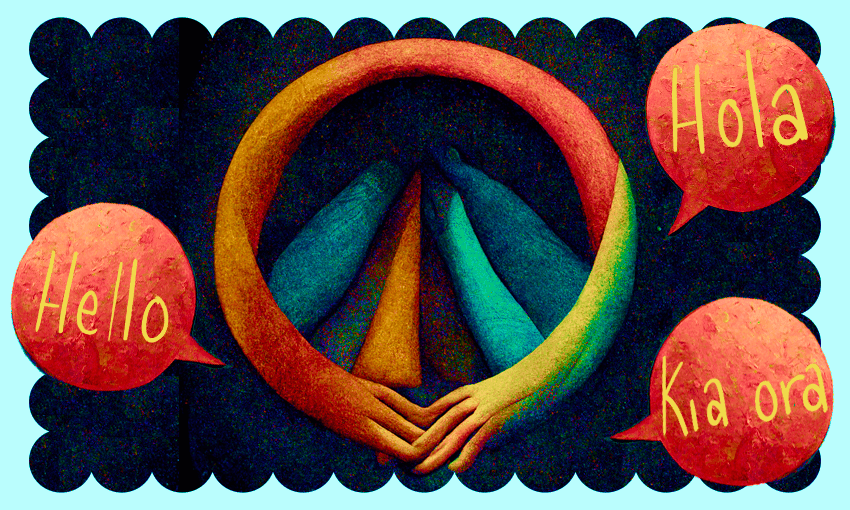Despite 30% of New Zealand companies being led by women, only 15% of our goods exporters are. NZTE wants to encourage more of our wāhine-owned businesses to go international.
At the 1998 MTV Awards, Madonna – joined by Lenny Kravitz on guitar – stepped on stage to perform her single ‘Ray of Light’ to a live TV audience of millions. The pop legend, who had just beaten Puff Daddy, Will Smith, The Verve and Brandy & Monica to win the coveted Video of the Year award, was wearing a plain white singlet and a pair of wide-leg Karen Walker trousers, bought at Barney’s department store in New York.
For Walker, who’d just started stocking Barney’s that year, the impact was immediate. Barneys rang the next day to order “any trousers you have”.
Today, Walker retails in 42 countries, 200 cities and 1,020 stores and is ranked by industry analysts as one of the top 500 people shaping the global fashion industry. As well as pants, she sells eyewear, jewellery, homeware, fragrance, shoes, handbags, bridal wear, and is worn by some of the world’s most visible women, including Michelle Obama, Lady Gaga, Rihanna, Gigi Hadid and Adele.
But it wasn’t just celebrity exposure that has propelled Walker’s business into the stratosphere. And the point of international growth isn’t just to make sales.
On Going Global, a podcast about exporting, Walker explains how being in offshore markets expanded all kinds of horizons.
“New Zealand is only so big, so if we wanted to grow our business, it made more sense to be a global niche product than a mass-market local,” she says. “We saw what it was like [internationally], what fashion and culture and creativity were like, and thought we wanted to be part of that type of thinking and that type of community.”
In the decades since Madonna wore Karen Walker’s pants, more female-led New Zealand businesses have taken to exporting, selling tech and services, as well as consumer goods. There’s Banqer, co-founded by Kendall Flutey (Ngāi Tahu, Ngāti Kahungunu), a platform that helps young people improve their financial literacy and confidence. And Kami, co-founded by Alliv Samson, a digital education provider used by over 32 million people around the world.
Even Shit You Should Care About (SYSCA), an Instagram account steered by a trio of young women originally from Blenheim, is technically an exporter: they translate the world’s biggest news stories to a global audience of thousands of paying subscribers (and more than 3.6m social followers).
According to research by the Ministry of Foreign Affairs and Trade (MFAT), more than 250,000 New Zealand women were exporting last year, representing 40% of New Zealand’s total export workforce, up from 38% a decade ago.
But that’s not enough.
“We know that around 30% of companies in New Zealand are led by women, but only 15% of our goods exporters are, which is a huge drop,” says Anna Guenther, New Zealand Trade and Enterprise’s (NZTE) women in export lead.
“We also know that women have been graduating from commerce degrees at the same rates as men since 1985, yet we’re not seeing that coming through in the leadership or founding of companies. So it’s clear that we have a leaky pipeline, and it shocks me that we still haven’t fixed that, 35 years down the track.”
Like many NZTE staff, Guenther has been an exporter herself – she co-founded crowdfunding platform PledgeMe, expanding it into Australia, and is still on its board.
At NZTE, she’s dedicated to getting more women into exporting. “That means actively supporting women-led companies who might need help removing barriers or leveraging opportunities, and identifying some of the things that might be stopping women from exporting,” she says. “We also want to figure out why companies led by men might not have any women in their leadership team and what we can do about it. So it’s not just about founders and CEOs – it’s looking at leadership with a more holistic approach.”
NZTE has a number of resources on offer for women, such as its Exports Essentials online course, its network-building, knowledge-sharing Women in Export Leadership events, and the chance to consult directly with Guenther herself.
Guenther says the most common barriers women face are having less extensive business networks compared to men, consistently attracting less funding than men, and cultural expectations that can limit their roles.
“Some of these barriers are really systemic. For women with children, there are often expectations around childcare, for instance, that [the mother has] to be the one that’s always there with the kids. You can expense for the cost of hosting an event, catching an Uber to that event, but not for childcare to go to that event, which is hard if you need to do something at night or on weekends, which can often be the case with export businesses.”
And some barriers are self-perpetuating. In the US, just 2% of venture capital went to female founders last year, while in New Zealand, NZTE investment data estimates that women are raising 1.7 times less money compared to men. “What’s really sad,” adds Guenther, “is we’ve had people tell us the reason they never raise investment is because they heard that only 2% of global venture capital goes to women, so why would they even try?”
While the barriers are daunting, those who take the export plunge are able to access markets that are bigger and more lucrative on a scale unimaginable within Aotearoa’s borders.
Women who export earn on average 10% more than non-exporting counterparts across all industries.
And there are some aspects of exporting that wāhine do better. According to NZTE’s research, women tend to be more educated and prepared before making a big business decision like exporting. They’re more likely to discuss their issues and seek support, more likely to attract positive media coverage, and more likely to generate better returns – while women raise significantly less investment on average, they tend to generate more in revenue overall.
Brianne West, who started her global cosmetics brand Ethique in her kitchen, says the opportunities exporting has given her company “vastly outweigh” the challenges.
“Viewing the challenges as little bumps on the road rather than catastrophic problems made it all seem so much more achievable. Export was not the unattainable dream I had imagined after all.”
In fact, it might be risky to waste time nurturing a domestic market, if your ambitions are ultimately elsewhere. Kami founder Alliv Samson told Going Global, “we always wanted to grow big overseas, but we kind of did the opposite. We tried doing it locally and that didn’t work for us… We could have immediately gone to the US and grown even faster. That was my biggest regret – not (exporting) on day one… If only we knew it was that easy, we could’ve done it.”
Guenther advises women considering exporting to figure out how to test what sort of interest there is for your product or service.
“Some of the best examples of women really succeeding are the ones who listen to those market signals and just give it a go,” she says. “Better Packaging, for example, just put up a website so people could start signing up and show they were interested, and then decided to go ahead [with exporting their product] because there were so many people responding to their Google ads.”
In retrospect, Karen Walker says she probably wasn’t sure she was “ready” to sell in the US either – but she’s glad that didn’t stop her. “Just throw yourself in there,” she says. “Just get on with it. It’s not going to be perfect, but it’s not going to be perfect if you don’t do it either.”
Find Going Global in the Business is Boring feed on Apple Podcasts, Spotify or wherever you listen to podcasts.






